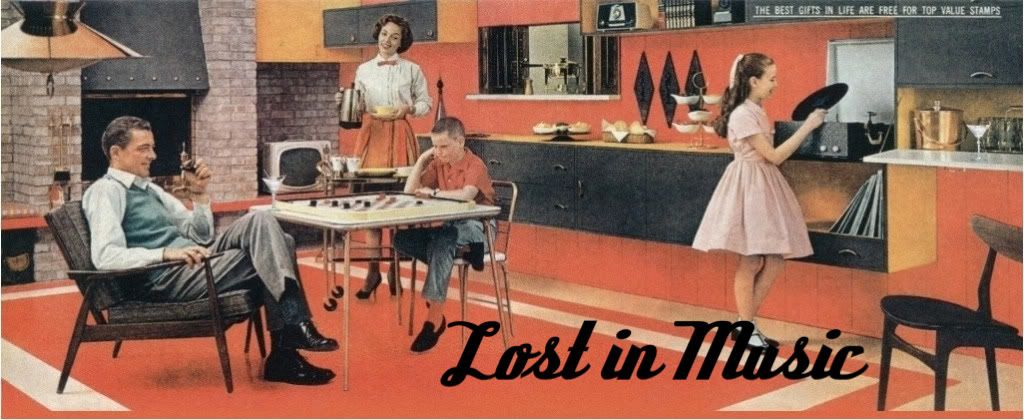 I Love 1981 - pt 15
I Love 1981 - pt 15In which Britain experiences it's first major synth-pop summer and the 12" single with extended dance mixes finally takes on as a mainstream musical art form.
The Human League first advertised theirs as featuring "a disco mix and odd mix, two separate very long versions of both songs". Major ground breaking here in more ways than one. Firstly it features the B side Hard Times before the A side Love Action, and secondly the B side is a kind of instrumental variation on the A side picking up only on the female 'hard times' vocal parts from the main song. Easier to listen to than explain.
The opus is a combination of The Human League's new style dance music with meaning and the late Martin Rushent's production skills who helped them achieve their distinctive sound not least by introducing them to the Linn drum machine. Lyrically, Phil Oakey is the tough Northern bloke (albeit with jewellry and make-up) who comes out with his hard times story "I've been a husband and a lover too..I've lain alone and cried at night...I feel the pain..." but ultimately gives in to, er, temptation, the 'love action' transmitted by.... who? The Daily Mirror published a gossip style story about his broken marriage and his affair with one of the girls (or both? ..can't remember) and we were even treated to a photo of his shock-horor-probe pierced nipple! Love Action ( I Believe in Love) is classic League of course and the one that got them to number 3 and well and truly on the road to fame (and we still haven't had Don't You Want Me yet).
 Although Soft Cell were very much in the synth-pop catchment area their electronics were a tad more minimal and seedy compared to the League's lush production. No matter though as their cover of two Motown numbers remains a classic in its own right to this day. Again it's a 'segue' type long mix cleverly bringing together the two songs in a new style electro-dance bonanza which meant DJs could rest for a bit while the punters danced on.
Although Soft Cell were very much in the synth-pop catchment area their electronics were a tad more minimal and seedy compared to the League's lush production. No matter though as their cover of two Motown numbers remains a classic in its own right to this day. Again it's a 'segue' type long mix cleverly bringing together the two songs in a new style electro-dance bonanza which meant DJs could rest for a bit while the punters danced on.Like The Human League's "instrumentals" 12" B side, theirs also fetaures a dubby trippy instrumental mix which became the blueprint for so many dub/dance crossover re-mixes for years to come. Tainted Love became a number 1 single in 17 countries and even broke the US top 10 in 1982. Famously however the duo made relatively little money from sales of the single as both sides were cover versions, leaving many royalties to their original owners.
Not bad going though for the archetypal odd couple (see Sparks) Marc Almond and Dave Ball who had recorded it as a make-or-break single for Phonogram. Northern Soul from Leeds for the new electronic age. Beep beep!

No comments:
Post a Comment